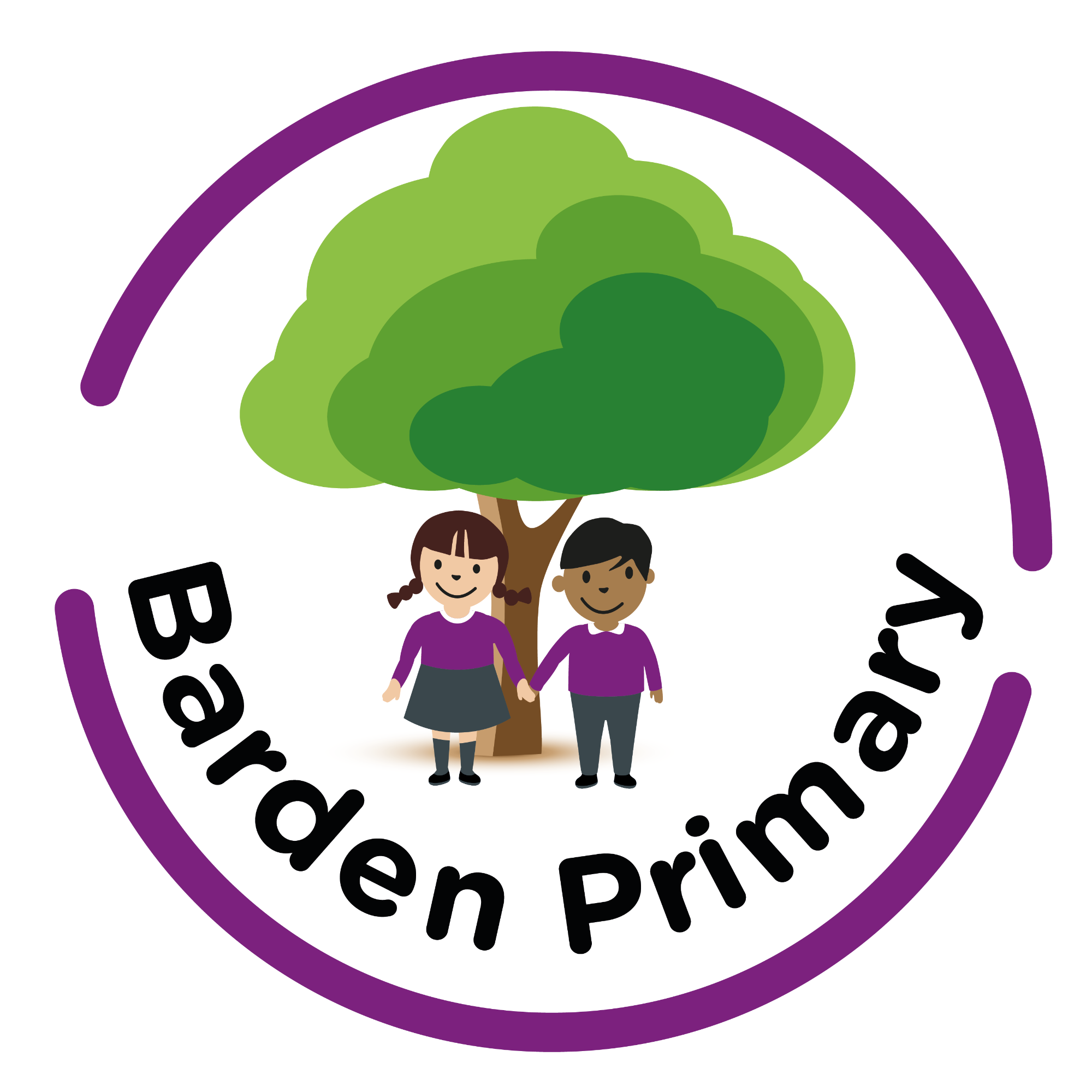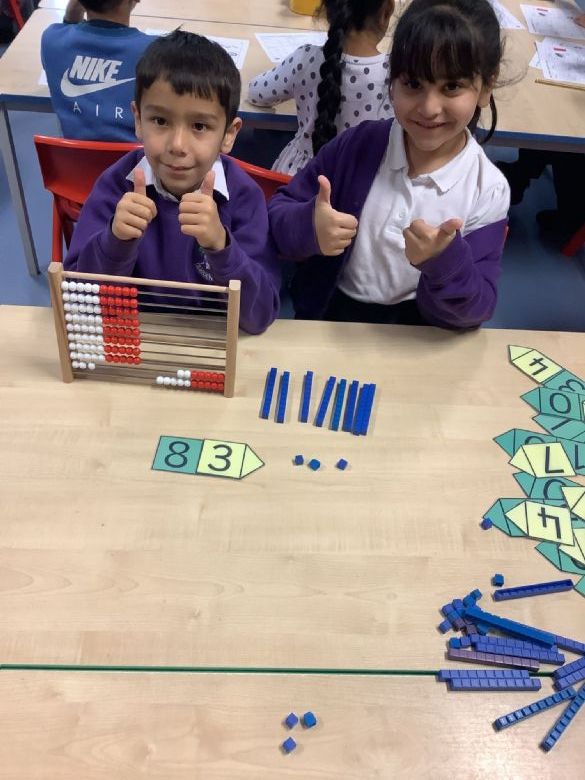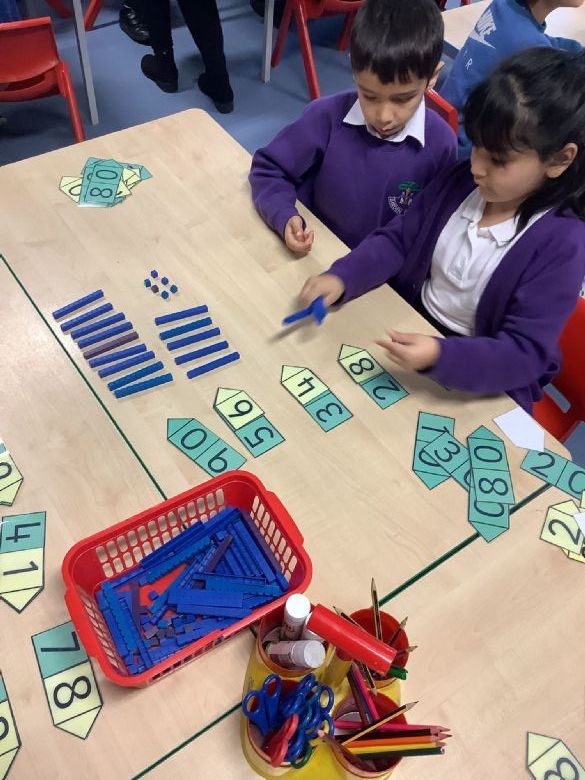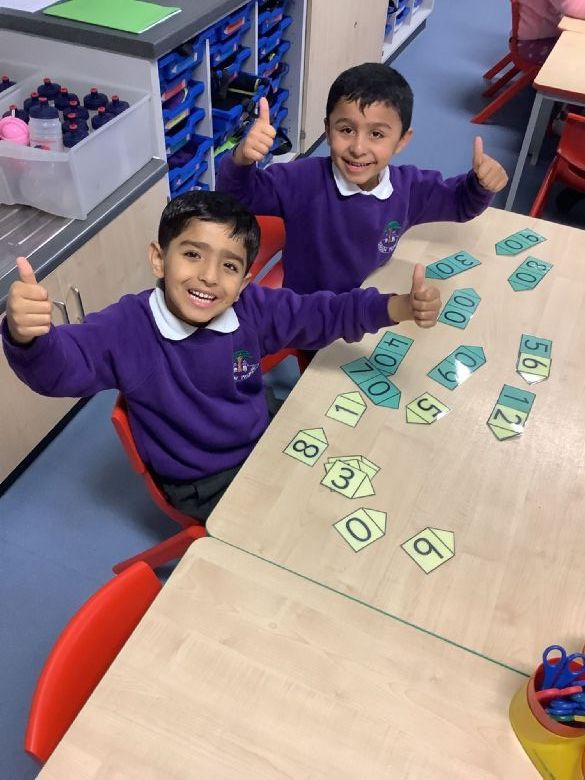Mathematics
Intent
Our aim at Barden Primary School is to provide all children with the foundations they need in Mathematics. The main areas are understanding number, reasoning, thinking logically and problem-solving with resilience, so children are fully prepared for the future. It is essential that these key areas of Mathematics are embedded throughout all strands of the National Curriculum. By adopting the mastery approach, it is also intended that all children, regardless of their starting point, will maximise their academic achievement and leave Barden Primary School with an appreciation and enthusiasm for maths. Our teaching at Barden makes sure that:
- We deliver a high quality maths curriculum that is both challenging and enjoyable.
- Children make rich connections through mathematical ideas to develop fluency, reasoning and competence in solving problems.
- Our children are able to apply their mathematical knowledge to other curriculum subjects.
- Children know mathematics is essential to everyday life, they are confident mathematicians who aren’t afraid to take risks.
- We develop independent learners with inquisitive minds who have secure foundations and an interest in self-improvement.
Implementation
At Barden Primary School, children study mathematics daily. We have taken the mastery approach and follow the White Rose Maths Scheme of Learning. White Rose Maths is a blocked scheme which allows for depth and breadth of learning within each strand of mathematics. Hallmarks of our Mastery Approach are;
- Concrete, Pictorial and Abstract Learning: Children engage with a wide and varied range of concrete manipulatives, pictorial representations and abstract methodologies within each session. Cohesive use of the CPA is a fundamental part of mastery in mathematics for all learners, not just those pupils with SEND. Concrete and pictorial references scaffold and strengthen understanding and are widely used as a teaching and learning tool from Foundation Stage to Year 6.
- Fluency, Reasoning and Problem-Solving: Every learning session includes the opportunity to develop fluency skills, construct chains of reasoning using relevant knowledge alongside relevant terminology and solve increasingly complex problems in a systematic and coherent way.
- Mathematical Vocabulary: Sessions include explicit reference to vital mathematical vocabulary and the use of stem sentences to support and encourage all children to communicate their ideas with mathematical precision and clarity. These sentence structures often express key conceptual ideas or generalities and provide a framework to embed conceptual knowledge and build understanding.
- Fluent Recall: We are committed to ensuring that all pupils secure their knowledge of Times Tables and Related Divisional Facts by the end of Year 4. Our pupils engage in regular testing through Times Tables Rock Stars to practice fluent recall.

Impact
At Barden, the expectation is that the majority of pupils will move through the programmes of study at broadly the same pace. We aim for each child to be confident in each yearly objective and develop their ability to use this knowledge to develop a greater-depth understanding of solving varied fluency problems as well as problem-solving and reasoning questions. However, decisions about when to progress should always be based on the confidence of pupils’ understanding and their readiness to progress to the next stage. Pupils who grasp concepts rapidly are challenged through rich and sophisticated problems before any acceleration through new content. Those who are not sufficiently fluent with earlier material, consolidate their understanding, including through additional practice, before moving on.
All teachers carry out formative and summative assessments through each term in Mathematics, feedback is given to children verbally, through self/peer assessment, through end of unit and block testing and through marking. Teachers then use this assessment to influence their planning and address any misconceptions.
Children are rapidly identified as needing further challenge or additional support, and we ensure that this is provided in a timely manner.
Reasoning strategies to use in the classroom
At Barden, we believe that reasoning is an integral part of the Mathematical Curriculum. Each Maths lesson aims to include at least one of the following reasoning strategies.
- Spot the mistake / Which is correct?
- True or false?
- What comes next?
- Do, then explain
- Make up an example / Write more statements / Create a question / Another and another
- Possible answers / Other possibilities
- What do you notice?
- Continue the pattern
- Missing numbers / Missing symbols / Missing information/Connected calculations
- Working backwards / Using the inverse / Undoing / Unpicking
- Hard and easy questions
- What else do you know? / Use a fact
- Fact families
- Convince me / Prove it / Generalising / Explain thinking
- Make an estimate / size of an answer
- Always, sometimes, never
- Making links / Application
- Can you find?
- What’s the same, what’s different?
- Odd one out
- Complete the pattern / Continue the pattern
- Another and another
- Ordering
- Testing conditions
- The answer is…
- Visualising
These strategies are a very powerful way of developing pupils’ reasoning skills and can be used flexibly. Many are transferable to different areas of mathematics and can be differentiated through the choice of different numbers and examples.
Parent Help/Links
These websites are a great resource to support your child with Maths at home.



